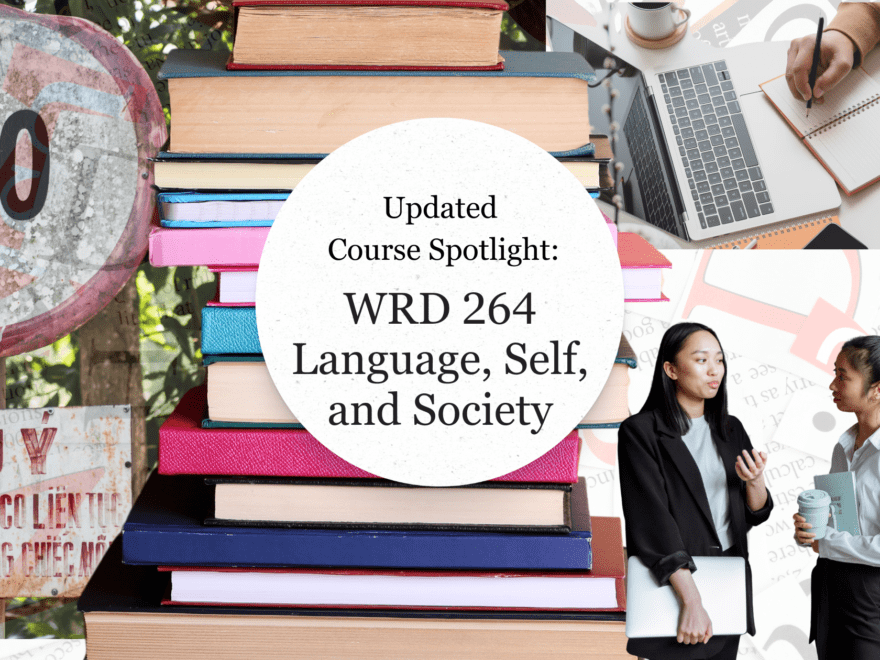As a social practice that we engage in each and every day, language holds a great deal of power in how we understand and move about our world. It constructs how we live, function, and relate to other people. In the upcoming Autumn Quarter, Dr. Jason Schnieder’s course, WRD 264: Language, Self, and Society, delves into this dynamic relationship.
Read on to learn more and hear about WRD 264 from Dr. Schneider’s perspective.
The topics of your class–language, self, and society–can encompass many different relationships. Is there a primary one you are focusing on?
Not a primary one, but the most prominent topics are language variation, language and identity, language and community, and multilingualism in society.
What kinds of readings will students complete in this course?
We have a main textbook: Language and Linguistic Diversity in the US: An Introduction by Susan Tamasi and Lamont Antieau.
Other than that there is a diverse mix of individual readings. I also have students read one book about language and culture during the quarter. Books I have used in the past include David Jurafsky’s The Language of Food: A Linguist Reads the Menu, Gretchen McCulloch’s Because Internet: Understanding the New Rules of Language, and most recently, John Baugh’s Linguistics in Pursuit of Justice.
What types of projects will students work on?
Students will write one informal essay, in which they reflect on language(s) (or languages) in their own lives and communities, some research-based papers, and a reflection on the selected book on language and culture (like those included as examples above).
What are the main learning outcomes?
I want students to finish the course with strong grounding in some core ideas from the field of sociolinguistics. This includes a recognition that language variation and change are normal and natural parts of language, and that no specific way of using a language–that is, no specific dialect–is inherently superior to any other way of using language. There is a great deal of linguistic science to support that view. Beyond just learning about these and other concepts, I want students to start reflecting more deeply and language in their everyday lives.
We’re all doing language all of the time, but the tools you develop in a class like this give you new ways to understand what it means to do language.
Dr. Schneider
Is there anything your students should be familiar with before taking this class to help them succeed?
Absolutely not. I structure the course in a way that does not assume background knowledge about linguistics. However, having an interest in and enthusiasm for encountering new perspectives on language make a huge difference in terms of how much you will enjoy and learn from the class. I would also say that entering into the study of language as an academic discipline requires an open mind.
What component of the class are you most excited for? Is one discussion topic your favorite, most related to your work, or particularly meaningful?
I’ve been teaching courses on these kinds of topics for many years, for a lot of different populations of students, and I find that there is widespread curiosity about language—and a lot of personal investment in learning about it. When students leave the class, they are able to go through their everyday lives with a new appreciation for how complicated the relationship between language and society really is. They also develop a much deeper feeling for how important language can be as part of their own identities. And, an added bonus, they might even be able to impress their friends and family with some of what they learn.
This course is part of the major core in WRD, and it can also give credit towards DePaul’s interdisciplinary minor in linguistics. For anyone who is interested in language, WRD 264 is a great place to start your journey.
To stay up to date with upcoming courses, check out the WRD Blog’s frequently updated section of course spotlights.
